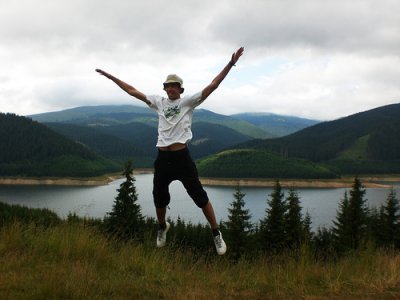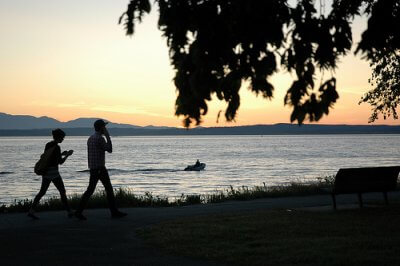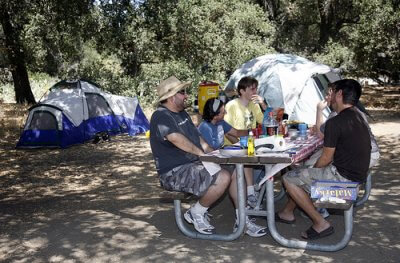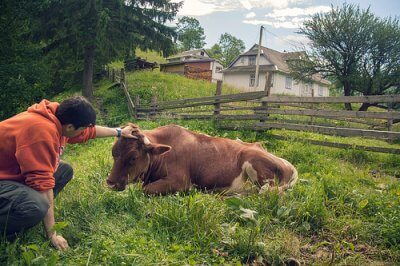What is Ecopsychology?

By: George Ploaie
What is ecopsychology? It attempts to answer important questions such as:
What are the hidden psychological affects of the ways we as humans destroy our environment?
How can we learn about ourselves as human beings through our relationship with the natural world?
What is Ecopsychology?
Ecopsychology is the collision of ecology and psychology.
It goes beyond the idea that the human mind is only of concern to humans, and looks at our interconnection with the greater, ‘more than human’ world.
Ecopsychology suggests we are not just part of either a human community or a family system. As human beings we are also linked with nature, and the ways we treat nature affect all of us profoundly.
Key concepts of ecopsychology
Some interesting concepts of ecopsychology include that:
1) while nowadays our minds are shaped by our social environments, they evolved from the natural world. Our minds are indeed still adapted to, and affected by, the ‘more than human’ world.
2) we all have a built in capacity to emotionally connect to natural environments
3) even when experiencing a crisis, we can find a sense of belonging by spending time in nature.
4) we feel a deep grief at the loss of nature, even if it is unconscious. The ways we are damaging the natural environment are actually affecting us all psychologically, emotionally, and spiritually.
A Brief History of Ecopsychology

By: Wonderlane
Ecopsychology is attributed as beginning in America during the 1990s, with the publication of “The Voice of the Earth” by American academic and historian Theodore Roszak. (Although actually, other American psychologists in California were also using the term by the time his book was printed).
Roszak was concerned by the environmental crisis happening around him.
Instead of focussing on the guilt and shame of consumerism, Roszak proposes we look into the deep bond that exists between people and nature. What are these bonds, how did they become severed? How can we repair and recreate them?
But it was the 1996 publication of popular book “The Spell of the Sensuous” by philosopher David Abram that bought the term fully into the mainstream. Abram wrote the book to describe the aliveness human beings feel when aware of the natural world around us. In fact Abram saw human beings as a part of nature and challenged the man-made divide. He refers to the “human” and “more-than-human” worlds.
Ecopsychology methods
Ecopsychologists work with different processes, but each involves spending time in nature. These include:
Adventure Camps
These often involve working in teams and developing new ways of communicating and co-operating. Forest walks or the building of shelters, for example, create a sense of empowerment.
Wilderness Journeys

By: OCParks_CA
Many people undertake wilderness journeys during a time of deep questioning. They can involve intense periods of solitude and journaling. You may come onto the journey with a question or an intention and ‘ask the land’ for answers.
Animal adventures
Some ecopsychology programs involve spending time with specific animals such as dolphins, elephants or even wild game. This creates a sense of belonging and an awareness of our own animal bodies.
Nature walks or time outside
Going out into nature doesn’t have to be an extravagant or once-in-a-lifetime opportunity. Even moments spent gazing at the night sky on a summer evening, or watching the waves on a beach, can help us connect to a world far greater than ourselves.
What does ecopsychology offer individuals?
As a practical tool, ecopsychology can serve us in the following ways:
Exploration
Exploring natural environments takes us outside of what we are used to. This gives us a sensory experience that can then help us explore sides of ourselves we’ve overlooked.
Self-awareness

By: Juanedc
Time in nature takes us out of the usual distractions, leaving us to be more aware of our thoughts, feelings, and physical bodies. It has a mindfulness affect. Many find that being in the connectedness of nature, and away from the social structures that cause them anxiety, means they also feel more safe to think and feel than usual.
Social Awareness
Being in nature creates a space to understand who we are outside of the social beliefs that have shaped us. Seeing how such beliefs have impacted the environment, we might realise how much we ourselves are impacted. And, also, responsible.
Sharing
Some wilderness experiences are done in groups, meaning that after participants share their insights. This helps to integrate the experiences and process any emotions which were evoked.
Connection
Yes, we connect to others if we are part of a group experience. But ecopsychology also helps us feel connected to a much bigger whole, expanding our concept of what the ‘world’ and our place in it is. When we feel the connectedness of nature we can begin to question how we could be more connected to others. It also connects us to ourselves, creating a space to see ourselves in new ways and understand our needs.
Value
Developing our awareness that we are part a wider world often evokes a deep value for all of life, including our own. Seeing ourselves as part of wild nature creates a deep awareness of our own unique humanity. We are different to other beings. Yet we still belong, and still, form a part of a larger cosmos.
Could ecopsychology benefit you?
Working with a psychologist or psychotherapist who integrates ecopsychology concepts can help you find a new perspective on your place in the world and how you would like to be in that world.
You can see yourself differently and might choose to give up old habits that no longer benefit for you and establish new ones that do.
As you shift and change, learning new approaches to life, sharing these processes with a compassionate professional enables us to work towards deeper change.
Still have a question about ‘what is ecopsychology?’ Post in the comment box below.




